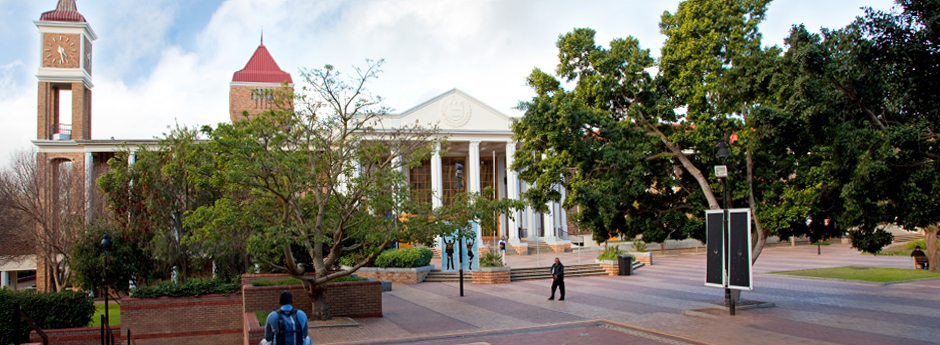Four months into the academic year and still without accommodation, desperate students at the University of the Western Cape (UWC) have occupied an office block, demanding that their plight be addressed.
About 45 male and female students from various provinces are sharing the open space in the hope that university authorities will resolve their plight. Suitcases and boxes containing their personal belongings are lined in the passages of ResLife, the university’s division that handles residential services. Boxes, mattresses and tables have turned into makeshift beds.
“I have not told my parents about this because I fear it would stress them out too much,” said a 20-year-old student, who asked not to be named.
“This is my second year without having a room I can call my own. I was squatting with my friends last year. This year, I was not so lucky. This is not what I expected. It is stressful, but I have to endure.”
Allocated accommodation
Speaking anonymously out of fear of victimisation, affected students said even the Students’ Representative Council (SRC) had been unable to help them resolve their problem with management.
“We respect each other. Males understand that we are in this together and we are here to study and graduate,” said a second-year LLB student from Mthatha in the Eastern Cape.
She said she applied for accommodation, but had not been placed.
Those who spoke to City Press said their studies were funded by the National Student Financial Aid Scheme (Nsfas). However, they were in a quandary because they could only access their Nsfas accommodation allowance once they could prove they had been allocated accommodation.
A 19-year-old student from Pretoria said he negotiated with UWC security guards to allow him and his fellow students to use bathrooms in residences occupied by other students.
“They used to refuse and lock us outside, but they now understand our plight,” he said.
The stranded group have security concerns, given that they are homeless. Their belongings are often stolen.
A 20-year-old computer science student from Mpumalanga said he had lost his laptop and some clothes. He said he applied for accommodation but his application had been declined, with no reasons given for doing so.
UWC spokesperson Luthando Tyhalibongo said inadequate accommodation was part of a national problem plaguing many higher education institutions. He said land had been identified to build student residences within the next three years. In addition, the institution had acquired a block of flats to alleviate the problem.
Currently, UWC allocates accommodation to 3 302 students, while private accommodation is provided to more than 2 100 students.
Campus protection services
Tyhalibongo said students had occupied ResLife illegally. They were told that this division would undergo repairs following incidents of arson during last year’s student protests, and that it was not suitable for occupation.
Regardless of the safety warnings, he said, students went ahead and occupied the building.
He admitted that the categories of students occupying ResLife varied and included those ineligible for residence according to UWC’s admission policy, as well as those on the waiting list who were anticipating some space availability after the time allotted for students to take up their placements had lapsed, and those students who had left their private accommodation because of poor academic performance and the concomitant lack of continued funding.
Tyhalibongo said the university had approached the Central Housing Committee and the SRC in an effort to assist the students. Negotiations were difficult because of disagreements, which were taking time to resolve.
“Unfortunately, student leaders and the occupants have been uncooperative. The conditions in the occupied office are hazardous and unacceptable for students to stay in.”
Tyhalibongo added that incidents of theft were being investigated by campus protection services, but the illegal occupation was making it difficult to ensure the safety of students concerned.
UWC SRC spokesperson Sibusiso Maneli said there were 13 first-year and 32 senior students living in ResLife. Initially, 30 students were there and other students occupied temporary rooms or had squatted in students’ rooms.
Maneli said management was unresponsive to their calls for accommodation. He accused management of being evasive, uncooperative and technical about the situation.
“What puzzles us is the fact that residential services has been running around and avoiding continuing the placement process. At some point, all the residential service staff were off sick,” Maneli said.
[Source: News24]





 WhatsApp us
WhatsApp us 

